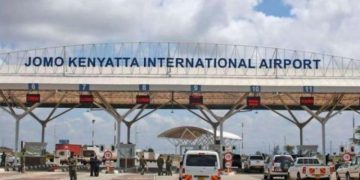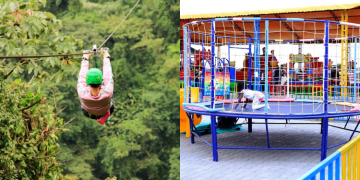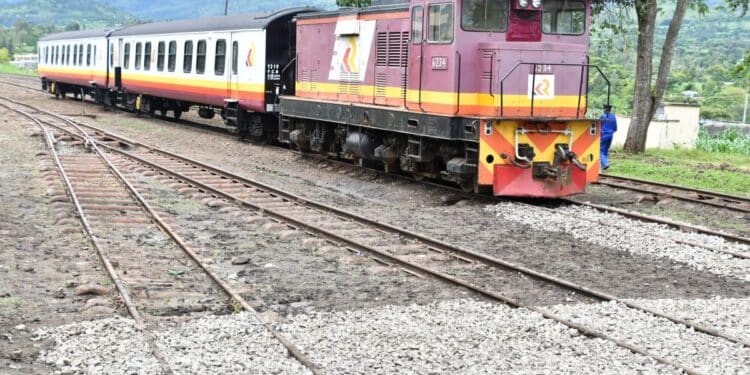A middle-aged man died on Tuesday morning after being hit by a train near Kibos area in Kisumu County. The Nairobi-bound train rammed into the man crushing him on the spot.
Kisumu Railways police boss Evans Gatembe confirmed the incident saying the unknown man was hit by the 6 a.m. cargo train from Kisumu heading to Nairobi.
According to the witnesses the unidentified man appeared drunk and that he did not move as the train kept hooting.

Shock gripped locals after finding body parts of the deceased scattered on the railway line.
Subsequently it was not clear if the overnight train had a stopover in the next station after the incident.
Also Read: KNH to Dispose 253 Unclaimed Bodies, Mainly Babies
Kisumu-Nairobi Train
The Kisumu Safari train makes the trip from Nairobi every Friday with stopovers in Naivasha, Nakuru, Njoro, Molo, Elburgon, Fort Ternan.
Additionally, the train stops at Londiani, Muhoroni, Miwani, Chemelil, Kibigori and Kibos stations to drop and pick passengers.
The train departs at 1830hrs and arrives in Kisumu at 0630hrs.
At the same time, the return trip is set for every Sunday with the train departing the new Kisumu Railway station at 1830hrs to arrive in Nairobi at 0635hrs.
Also Read: Ministry of Agriculture Announces Marketable Training Oppurtunites for Youth
Past Train Accident
In 2022, the Kenya Railways Corporation blamed an early morning train accident along Nakuru-Kisumu railway line on poor drainage and ongoing road constructions.
The corporation, however, noted that no injuries were recorded during the September 24 accident that occurred at around 7 am.

Kenya Railways Train Caution
In the recent past, the Corporation cautioned Kenyans against acts that could lead to accidents on the railway lines.
In the statement the state corporation maintained that walking on railway tracks remains banned and that stern action would be taken against those who flout the regulation.
Further, motorists were also warned against illegal railway crossing, with motorists advised to use designated crossing areas such as level crossings.
“Due to enormous weight and inertia, trains cannot stop instantly and hence have the right of way. For example, a freight train traveling at 80 kilometers per hour pulling one hundred loaded wagons, on applying brakes will come to a stop several meters ahead,” read the statement.













































































